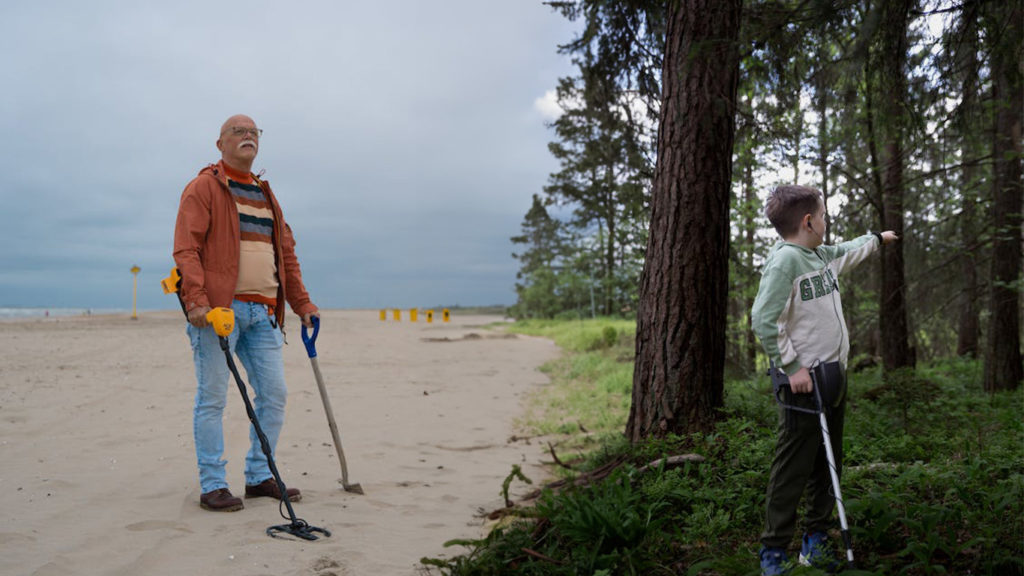Table of Contents
Introduction: Two Sides of a Thrilling Adventure
The captivating world of metal detecting offers an enticing variety of terrains, each presenting its own unique challenges and rewards. From the open expanse of a beach to the rich historical tapestry of inland locations, metal detecting can be an adventure that unlocks secrets buried beneath our feet. Let’s delve into the fascinating comparison of beach metal detecting versus land detecting and reveal the top seven differences that every detectorist should know.
The Lure of Beach Metal Detecting
The rhythmic ebb and flow of waves, the warmth of the sun, and the salty air create an enticing backdrop for metal detecting. Beaches are popular hotspots for detectorists, mainly because of their high human traffic. The hustle and bustle of people frequenting these sandy stretches increase the chances of lost valuables. Jewelry, coins, watches, and occasionally even historical shipwreck artifacts – the beach is indeed a veritable treasure trove for metal detecting enthusiasts.
Facing Saltwater Challenges Head-On
However, as inviting as beach metal detecting may seem, it is not without challenges. Saltwater can lead to ground mineralization, which causes interference, often resulting in false positives. To overcome this, detectorists need to use metal detectors equipped with frequency adjusters or pulse induction technology to minimize the impact of mineralization. Additionally, the task of digging in wet sand or water, especially in shifting tidal areas, adds an extra layer of complexity.
The Underestimated Beauty of Dry Sand Areas
Dry sand areas, often overlooked by detectorists, can be equally rewarding. These regions, usually populated with beachgoers relaxing on towels or beach chairs, can be a rich source of modern lost items. In the excitement of beach activities, it’s common for visitors to lose track of their possessions, which could later be your exciting find!
Inland Metal Detecting: Unearthing the Past
Away from the coast, the landscape shifts to fertile fields, forgotten battlefields, historic homesteads, and public parks. Land detecting is often like walking through history. Here, metal detectorists might stumble upon historical artifacts such as relics from bygone eras, old coins, or Civil War bullets. The joy of discovering a piece of the past is a unique reward for land-based detectorists.
Understanding the Challenge of Soil Mineralization
Inland environments often come with their own set of challenges. The soil in these areas tends to be more mineralized compared to beach sand, leading to a greater number of false signals. Fortunately, many modern metal detectors feature ground balance control, allowing detectorists to filter out these confusing signals and focus on potential finds.
The Bounty of Old Sites and Buildings
Old sites and buildings, particularly those with historical significance, can be rich hunting grounds for land detectorists. Foundations of old homes, former picnic spots, and even ghost towns can yield finds that offer a glimpse into the past, allowing you to piece together historical narratives from your discoveries.
Considering Accessibility and Permissions
Whether beach or land detecting, it’s essential to be aware of accessibility and permission. Many beaches are open to the public, but there may be restrictions during certain seasons or times of the day. Inland detecting, especially in historic or privately owned sites, often requires explicit permission. Always respect local laws and private property when planning your detecting adventure.
Conclusion: Celebrating the Diversity of Metal Detecting Terrain
In the grand adventure of metal detecting, the terrain is as diverse as the treasures lying beneath. Beach detecting lures with the promise of modern valuables, while land detecting draws enthusiasts with the allure of historical discovery. Understanding the unique aspects of each terrain – beach versus land – equips you to maximize your metal detecting experience and adds to the joy of unearthing secrets hidden below the surface.
References:
- “Metal Detecting on Land vs. Water” MetalDetector.com
- “The Metal Detecting Environment: Beach or Land?” DetectorList
- “A Guide to Metal-Detecting in the UK: Where to Go and What You Might Find” The Guardian








Recent Comments